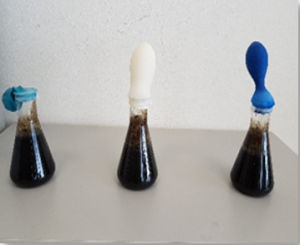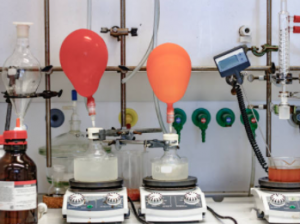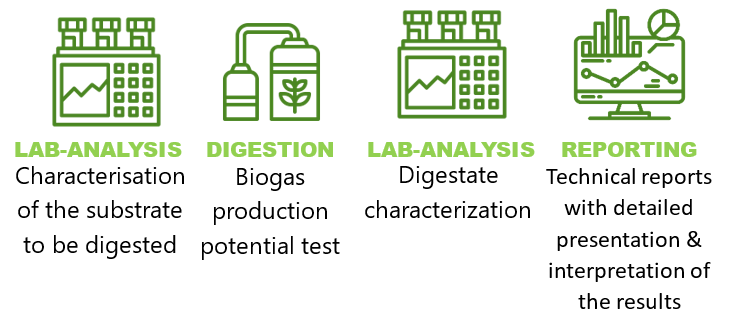

The valorization of organic waste for biogas production through anaerobic digestion is a well-established and widely applied technology for the production of energy from renewable raw materials. One of the most important factors, which significantly influence the viability of such an investment, is the quality of the different feedstocks to the anaerobic digesters, in terms of their biodegradability and the corresponding quantity of biogas produced. Consequently, in order to gain insight into the key design parameters of the anaerobic digestion process, the so-called biogas production potential of the materials intended to be fed to the digesters must be determined. Therefore, in technical and economic feasibility studies, carried out prior to the construction of a biogas plant, the expected energy output is estimated by carrying out biogas production tests.


